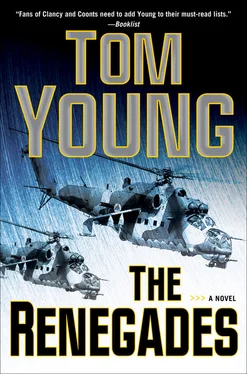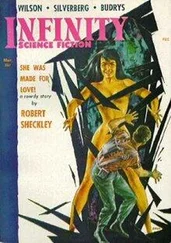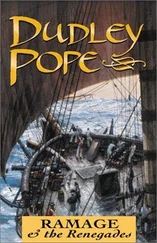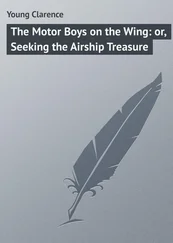Nothing down there that Parson could see. Maybe the dog had spotted or sniffed some animal it didn’t like. A wolf or something.
Parson had experienced his own encounter with Afghan wolves. A starving pack had stalked him and Sophia as they trekked through the snow after the shoot-down of their C-130. When the wolves had finally attacked, the first one hit Parson like a linebacker, all teeth and muscle, hard enough to knock him off his feet. He’d used his rifle, his pistol, even his knife to fight those damned things off. Sophia killed a couple of them, too.
And now he found himself forced down in Afghanistan again. The air itself felt heavy, more like currents of water than gusts of wind. He forced himself to concentrate, to think about the tactical situation. Parson wondered if he lived his life like a timberline spruce in his native Colorado, clinging to existence at the ragged edge, holding on to alpine soil that just barely kept it alive. Such a tree survived one day at a time, through adaptation and perseverance. Parson knew he had to do the same.
“I’ll build a little defilade for us,” Conway said. The Gulf War vet began piling stones and slabs of shale in a semicircle near the Mi-17’s broken tail boom. “Too bad not to have sandbags,” he said.
“How do you think we should set up?” Parson asked.
“If we put the M4 back here with me, and the crew chief’s weapon up front, we’ll have an interlocking field of fire.”
“Sounds like you’ve done this before,” Parson said.
“A little bit. Are those the only two rifles we have?”
“Yeah. But maybe we won’t need them. Task Force is sending helos out to us. The question is can they get to us in this wind.”
“Can’t we just hump it down to a flat spot in the valley?” Conway asked. “Maybe the choppers would have an easier time landing down there.”
“They would,” Parson said. “I’ve been thinking about that. But I’d rather not leave a defensible spot to go traipsing over ground with no cover.”
“Hmm.” Conway placed his hands on his hips, looked at the terrain below him and above him. “Me neither,” he said.
Reyes stepped from inside the helicopter and surveyed the preparations going on around the aircraft. Dried blood stuck to his hands; he’d worked without latex gloves. Parson had heard pararescue guys talk about what they called “dirt medicine.” In a combat zone, you had bigger problems than germs. If your patient bled to death through a clean wound, you hadn’t done him much good.
“Sir, you’re setting up like you think we’ll be here awhile,” Reyes said.
“I hope not,” Parson said. “I just don’t know if a chopper can get to us right now.”
“How’s everybody doing in there?” Conway asked.
“Your partner’s leg is broken, but it’s not a compound fracture,” Reyes said. “Could have been worse. And I have Sharif’s bleeding under control.”
“Rashid will be glad to hear that,” Parson said.
“I don’t want to use a tourniquet unless I have to,” Reyes said, “because then he could lose the leg.”
“Good thinking,” Parson said. The last thing Afghanistan needed was one more amputee. The carpenters who carved crude prosthetics represented the only growth industry in the country, except maybe the poppy growers. And it took a lot of time and money to get an aircrew member trained. You couldn’t keep losing them at this rate.
Work would settle his mind, Parson decided. He removed his survival vest, but kept on his body armor. He pushed his flight suit sleeves up above his elbows and helped Conway pile rocks. The two men created a low wall of stone, with a notch left open for a rifle barrel, much like the rock berm Rashid and the crew chief had built near the front of the aircraft. Reyes, still busy with his patients, gave his M4 to Conway.
Parson picked up his survival vest and took his radio from its pouch. He’d kept the PRC-90 on ever since his initial satphone call, hoping to hear the rescue choppers announce their approach. But so far, he’d heard only hiss.
He placed the radio atop the stone wall, and beside it he put other tools in case he needed them quickly. They included a signaling mirror and a flare launcher roughly the shape of a thick pen. The little pen-gun launcher didn’t look like much, but it could throw a gyrojet flare so high that rescue pilots wouldn’t miss it.
“Gentlemen,” Parson said, “collect your gear so you can grab it quick. If the helos do get to us, we don’t want to screw around.”
Reyes positioned his medical ruck in the door frame of the Mi-17. He unrolled a Skedco litter—a sheet of hard green plastic with black nylon straps, ready to move the two injured men since neither could walk. Rashid and his crew chief had already stowed their helmets in bags beside the chopper’s nose. Parson dropped his own bag near his survival gear and kneeled on the ground behind the rock wall.
Every gust blew harder. One flung grit into Parson’s face, stung his cheeks and eyes. He blinked, rubbed his eyes, pulled his sunglasses from a zippered pocket, and put them on. Maybe the shades would provide at least a little protection. He wished he’d brought a jacket; it was a little cooler at this elevation. The wind died to near calm, then threw dust again.
So the gust increment would be a bitch today, Parson realized. High winds were always a pain. But you could deal with up to thirty knots pretty easily as long as it blew steady. However, ten gusting to thirty beat the daylights out of you. He guesstimated current winds at ten knots gusting to, hell, forty. And it wasn’t even noon yet. The winds would pick up during the afternoon. Afghanistan seemed to want to show Parson its worst weather in every season.
A distant rhythm rose with the gusts, nearly imperceptible at first. Parson realized he’d listened to it for several seconds before it registered: the sound of helicopters. The howl of wind and slap of rotors intertwined in a counterbeat until the chopper noise dominated.
The same rhythm, with an electronic hum, emitted from Parson’s radio: a chopper pilot pressing a transmit switch but not yet talking. Gathering his thoughts, apparently, in a language not his first.
“Golay,” the pilot said finally. Afghan accent. “Lightning flight. We are two-ship Mi-35.”
That would work. The Mi-35 cabins had enough room to evac Parson and all of Rashid’s crew and passengers.
“Lightning, Golay One-Eight,” Parson said. “I hear your aircraft. Do you have my position?”
Another vibrating pause on the radio. Then, “Affirmative. Do you visual?”
“Negative, Lightning,” Parson said. “I’ll advise when I see you. The LZ is cold, but hostiles might be nearby.”
“Copy.”
The Mi-35s grew louder. They appeared against a ridge in the distance, farther away than he’d expected, small as hornets. The pair of helicopters throbbed into the valley. Parson keyed his radio.
“Lightning,” he called, “Golay has you in sight. We’re about three miles off your two o’clock. I’ll pop a flare.”
Parson twisted the orange flare cartridge into the launcher’s chamber. With his thumb, he pulled down the spring-loaded trigger handle, held it above his head, looked away from it. He released the trigger and felt the firing pin snap against the cartridge. The flare spat like a bottle rocket and smoked an arc high over the stone ledge, but the wind flattened its trajectory. Parson put down the launcher and picked up his radio again.
“Lightning,” he transmitted, “you get a visual on that flare?”
“Negative, Golay.”
“Okay, come right about ten degrees. I’ll pop another one.”
He carried bigger flares in his survival vest, but he preferred not to use them in this wind. They’d spew sparks that could fly anywhere and start a fire. Parson cursed under his breath and loaded another round.
Читать дальше












